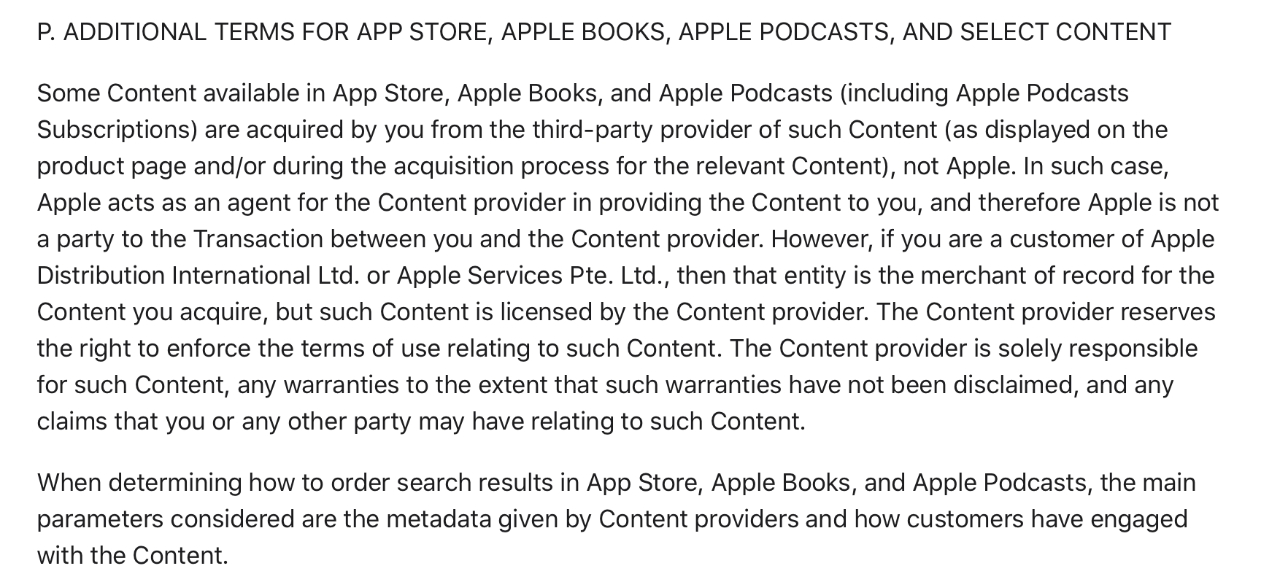A new lawsuit demanding $5 billion in damages because of alleged false advertising over Apple Books lacks the understanding that digital books are licensed and not owned.
Apple famously faced and lost a “very ugly” lawsuit in the earliest days of what was then called iBooks. That was a startling misreading of the law, but regardless, the suit made Apple pay out $450 million.
And now a law firm figures it can get 11 times that amount in another spurious case.
According to its filing with the United States District Court for the Northern District of California, law firm Siri & Glimstad LLP, is seeking $5 billion in damages for its clients and others in a class action suit. The allegation is that Apple intentionally misleads users into believing they are buying ebooks instead of licensing them.
“[Consumers] are led to believe they are purchasing the book, just like a physical book,” says the filing, “but in reality the consumer is only purchasing only a revokable license to access that book – which means that access can be revoked at any time.”
One plaintiff, Jennifer Morehouse, was thereby “financially harmed” when she paid $19.99 for an audiobook called “The Idea of You” by Robinne Lee. The other plaintiff, Keri Smith, paid out $4.99 for the ebook version of “Starting Over in Maple Bay” by Brittney Joy.
In both cases, the suit says that the plaintiffs want to continue buying books from Apple. But they are at constant risk of suffering this harm, because they have no way to know if Apple stops its allegedly deceptive practices.
Also in both cases, the suit states that neither plaintiff was ever told about licensing books and that they weren’t actually buying them outright.
The lawsuit is factually wrong
The filers are wrong that they weren’t told that the books aren’t owned and are licensed, and don’t understand that Apple doesn’t own the property. Apple Books are only available on Apple devices, and setting up any of these requires agreeing to Apple’s media services terms and conditions.
Those full conditions explicitly refer to “Content on our Services… which is licensed by the Content provider.”
Then in the court filing, as spotted by MacRumors, the suit hinges on the claim that because ebooks are licensed instead of sold, access to the titles can be revoked. This is also not true.
If a publisher does withdraw a book from the Apple Books store, that title cannot be bought in future — and previously sold editions cannot be re-downloaded.
But an Apple Book that is on user’s device remains on their device. Apple cannot retrospectively remove books from a user’s library, it cannot access a user’s iPhone to alter what’s there.
Suing Apple for billions
Between them, the plaintiffs spent a total of $24.98 that they say they would not have done, had they read the terms and conditions they claim don’t exist. In recompense, they are looking for damages that are fractionally over 200 million times what they paid.
The presumption is that this amount is owed because this is a class action lawsuit and every Apple Books buyer has similarly been harmed. But the real presumption has to be that Apple has the money and will once again settle a Books lawsuit.
For if it weren’t, if this were really a genuine misunderstanding of how all ebook sales work, Amazon would be being sued too.
This suit does in fact reference Amazon Kindle, but the wording immediately implies that it is only with Apple Books that titles are licensed instead of actually sold. The truth is that while Apple Books arguably has different features to Kindle, Kobo, or any other reseller, they each license ebooks to readers in precisely the same way.
It’s possible that the law firm of Siri & Glimstad intends to sue Amazon over the same issue. At present, however, there is no indication of such a suit and the company has yet to respond to AppleInsider requests for more information.





